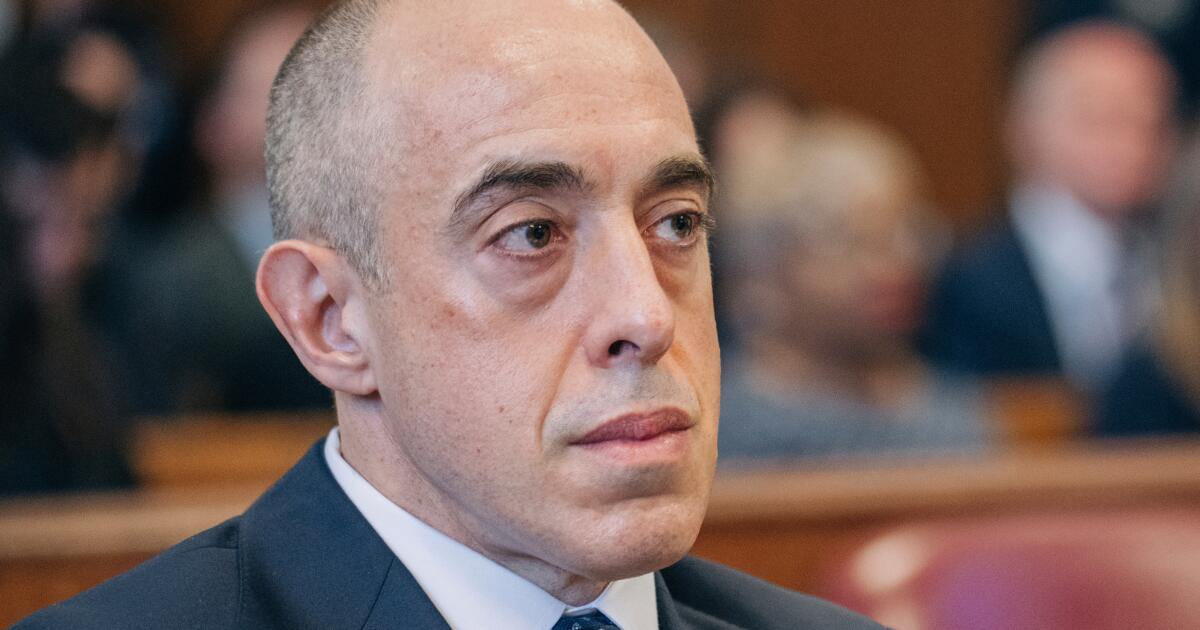PORTSMOUTH/SAINT-LO (Reuters) -Britain paid tribute on Wednesday to those who took part in D-Day, promising to “always remember” the sacrifices made by the Allied soldiers who invaded France by sea and air to drive out the forces of Nazi Germany.
With guests waving British flags, appearances from veterans, recollections and readings – and some tears in Queen Camilla’s eyes – the British ceremony took place in Portsmouth, the main departure point for the 5,000 ships that headed to Normandy for the June 6, 1944, operation.
“Today we come together to honour those nearly 160,000 British, Commonwealth and Allied troops who, on 5th June 1944, assembled here and along these shores to embark on the mission which would strike that blow for freedom and be recorded as the greatest amphibious operation in history,” King Charles said.
“Let us, once again, commit ourselves always to remember, cherish and honour those who served that day and to live up to the freedom they died for.”
About 4,400 Allied troops died on D-Day.
In France, where the main ceremonies will take place on Thursday with world leaders including U.S. President Joe Biden and Ukrainian President Volodymyr Zelenskiy, British and U.S. veterans gathered near Benouville Bridge, codenamed Pegasus Bridge during D-Day.
“War is a nonsense, really. But in this case, it was necessary,” said Royal Navy veteran gunner Bob Gravells, who ferried troops to the Normandy beaches.
“I’m proud that I played a very small part in freeing Europe. A very small part,” he said.
Thousands of tourists gathered alongside the D-Day beaches and visited World War Two cemeteries. Collectors drove army jeeps, and U.S., Canadian, British and French flags adorned buildings.
“I don’t have an ache of pain in my body. How could I be any luckier? And I’m over here, celebrating on Pegasus Bridge,” Jake Larson, a 101-year old U.S. veteran who landed on Omaha Beach, said after the Pegasus Bridge ceremony. “Thank you guys. Thanks everybody for coming here.”
French President Emmanuel Macron, who paid tribute to French resistance fighters in Brittany earlier in the day, will later take part in a ceremony in Saint-Lo, Normandy, which was almost entirely destroyed by Allied bombardments as part of D-Day and the Battle of Normandy.
“This trauma turned our city into the ‘capital of the ruins’, as playwright Samuel Beckett wrote,” the city’s mayor, Emmanuelle Lejeune, told Reuters. The city of 12,000 people at the time was 90% destroyed.
(Reporting by Dylan Martinez in Portsmouth, Michael Holden in London, John Irish, Elizabeth Pineau, Lucien Libert in Normandy, Writing by Ingrid Melander, Editing by Angus MacSwan)
